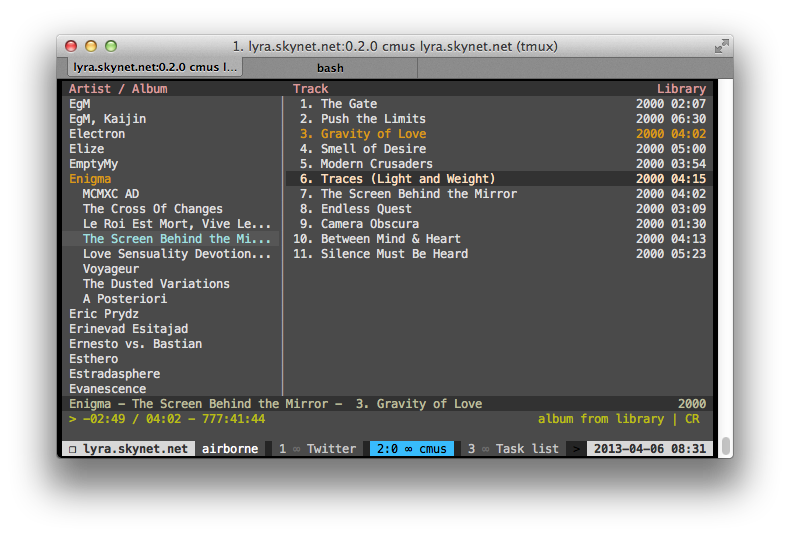Set aside for the moment the fact that Optimus Prime’s defining characteristic is his ability to transform. Pretend, instead, that he’s just an enormous, sentient robot. That’s what your keyboard would be like if you had mechanical key switches in there. Maybe you already do and this is old hat; if that is the case, move along. But if you want to learn about Cherry MX Blues and the siren song of the Rosewills and the Leopolds, by all means, read on.
Why Python Is Your Tooling Language of Choice

Python is, by far, the language of your choosing when you need to build a toolchain of utilities that interact with local systems, servers, other software, running processes, and generally all things outside of your application development.
I leave out application development because I still believe that when it comes to server-side application code that lives for exactly one user request, the best language is the one you are comfortable with. It may be Python, but it may also be Ruby, PHP, Scala, Erlang, Haskell, or one of those new-age sparkly languages such as Go or Rust.
Yet, as you dig deeper into forking processes, maintaining a running state, cleaning up after yourself (I’m talking about memory, I will assume that you bathe), and generally acting predictably, Python is, without a doubt, your chosen language.
Why? I’ll tell you why.
C * Music Player Is My New Best Friend
Have you heard of C * Music Player, also commonly abbreviated as its command
name, cmus? If you haven’t, you’re potentially missing out on your new
favorite music player (at least, since WinAmp 2.x; ahhh, those were the days).
C * Music Player is for UNIX-like OSes, which essentially means Linux and OS
X. You can usually grab it through your package manager of choice (apt in
Debian-based Linuxes, Homebrew in OS X).
It looks a little like this:

That’s cmus running in a tmux session in iTerm 2, using the Zenburn color
theme that now ships along with it (finally).
You might be thinking, “Ugh, a terminal-based music player? How limiting.” Not so. What if I told you that you could have global keyboard shortcuts and Growl notifications? Well, you can (at least in OS X). I’ll tell you how.
Configure Your Old Airport Express in Mountain Lion
Apple, in their ultimate wisdom, have made it impossible to install the AirPort Utility version 5.6 in Mountain Lion. The utility works, mind you, but you can’t install it.
That is, unless you have a little bit of bash-fu on your utility belt, which I do. You can extract the utility from the installer package and run it directly to configure your older-generation AirPort Express. Want to learn how?
Amazon Cloud Player vs Google Play
Perhaps you’ve heard of Amazon’s new Cloud Player and Google Play (previously Google Music), and perhaps you’ve used one or both of them. If you’ve already formed your own opinion, it’s unlikely that what I will say here will change it, but if you’re considering trying one of these (admittedly awesome) services, you may enjoy reading on.